Related Research Articles

The Presidential Advisory Council on HIV/AIDS (PACHA) advises the White House and the Secretary of Health and Human Services on the US government's response to the AIDS epidemic. The commission was formed by President Bill Clinton in 1995 and each president since has renewed the council's charter.

Uniformed Services University of the Health Sciences (USU) is a health science university and professional school of the U.S. federal government. The primary mission of the school is to prepare graduates for service to the U.S. at home and abroad as uniformed health professionals, scientists and leaders; by conducting cutting-edge, military-relevant research; by leading the Military Health System in key functional and intellectual areas; and by providing operational support to units around the world.

Stanley Alan Plotkin is an American physician who works as a consultant to vaccine manufacturers, such as Sanofi Pasteur, as well as biotechnology firms, non-profits and governments. In the 1960s, he played a pivotal role in discovery of a vaccine against rubella virus while working at Wistar Institute in Philadelphia. Plotkin was a member of Wistar’s active research faculty from 1960 to 1991. Today, in addition to his emeritus appointment at Wistar, he is emeritus professor of Pediatrics at the University of Pennsylvania. His book, Vaccines, is the standard reference on the subject. He is an editor with Clinical and Vaccine Immunology, which is published by the American Society for Microbiology in Washington, D.C.

The Johns Hopkins University School of Medicine (JHUSOM) is the medical school of Johns Hopkins University, a private research university in Baltimore, Maryland. Founded in 1893, the School of Medicine shares a campus with Johns Hopkins Hospital and Johns Hopkins Children's Center, established in 1889.
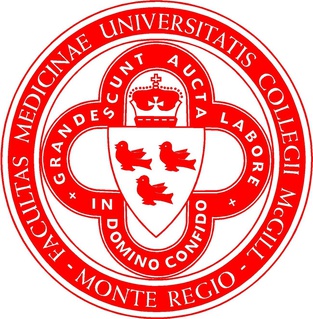
The Faculty of Medicine and Health Sciences is one of the constituent faculties of McGill University. It was established in 1829 after the Montreal Medical Institution was incorporated into McGill College as the college's first faculty; it was the first medical faculty to be established in Canada. The Faculty awarded McGill's first degree, and Canada's first medical degree to William Leslie Logie in 1833.

William Herbert Foege is an American physician and epidemiologist who is credited with "devising the global strategy that led to the eradication of smallpox in the late 1970s". From May 1977 to 1983, Foege served as the Director of the Centers for Disease Control and Prevention.

The Joan & Sanford I. Weill Medical College of Cornell University is Cornell University's biomedical research unit and medical school in New York City.
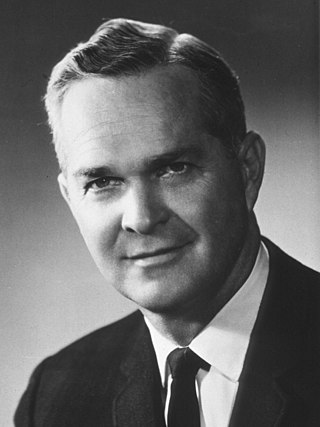
Robert Quarles Marston was an American physician, research scientist, governmental appointee and university administrator. Marston was a native of Virginia, and, after earning his bachelor's, medical and research degrees, he became a research scientist and medical professor. He served as the dean of the University of Mississippi School of Medicine, the director of the National Institutes of Health, and the president of the University of Florida.
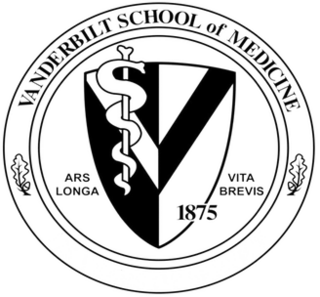
Vanderbilt University School of Medicine (VUSM) is the graduate medical school of Vanderbilt University, a private research university located in Nashville, Tennessee. The School of Medicine is primarily housed within the Eskind Biomedical Library which sits at the intersection of the Vanderbilt University and Vanderbilt University Medical Center (VUMC) campuses and claims several Nobel laureates in the field of medicine. Through the Vanderbilt Health Affiliated Network, VUSM is affiliated with over 60 hospitals and 5,000 clinicians across Tennessee and five neighboring states which manage more than 2 million patient visits each year. As the home hospital of the medical school, VUMC is considered one of the largest academic medical centers in the United States and is the primary resource for specialty and primary care in hundreds of adult and pediatric specialties for patients throughout the Mid-South.
David M. Serwadda is a Ugandan physician, medical researcher, academic, public health specialist and medical administrator. Currently he is a Professor of Public Health at Makerere University School of Public Health, one of the schools of Makerere University College of Health Sciences, a semi-autonomous constituent college of Makerere University, the oldest university in Uganda. Serwadda is also a founding member of Accordia Global Health Foundation's Academic Alliance.
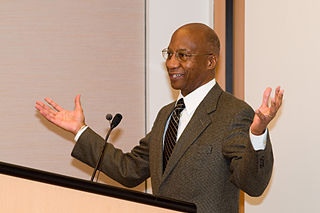
Donald R. Hopkins is a Bahamian American physician, a MacArthur Fellow and is the Vice President and Director of Health Programs at The Carter Center. He graduated from Morehouse College with a B.S., from the University of Chicago with a Doctor of Medicine, and from the Harvard School of Public Health with a Master of Public Health. He studied at the Institute of European Studies, University of Vienna.
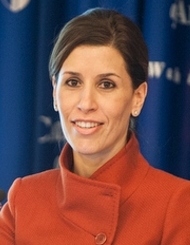
Luciana Borio is a Brazilian-American infectious disease physician and public health administrator. She is a vice president at In-Q-Tel. She previously served as director for Medical and Biodefense Preparedness at the National Security Council, acting chief scientist of the U.S. Food and Drug Administration (FDA), assistant commissioner for counterterrorism policy of the FDA, and director of FDA's Office of Counterterrorism and Emerging Threats. She is known for her work advancing clinical trials, the development of medical countermeasures for health emergencies, and the public health responses to Ebola and Zika outbreaks.
James W. Curran is professor of epidemiology and dean of the Rollins School of Public Health at Emory University. He is an adjunct Professor of Medicine and Nursing, and Co-Director and Principal Investigator of the Emory Center for AIDS Research. He is immediate past chair of the board on Population Health and Public Health Practice of the Institute of Medicine and served on the Executive Committee of the Association of Schools of Public Health. Additionally, he holds an endowed chair known as the James W. Curran Dean of Public Health. Curran is considered to be a pioneer, leader, and expert in the field of HIV/AIDS.

Arturo Casadevall is a Bloomberg Distinguished Professor of Molecular Microbiology & Immunology and Infectious Diseases at the Johns Hopkins Bloomberg School of Public Health and Johns Hopkins School of Medicine, and the Alfred and Jill Sommer Professor and Chair of the W. Harry Feinstone Department of Molecular Microbiology and Immunology at the Johns Hopkins Bloomberg School of Public Health. He is an internationally recognized expert in infectious disease research, with a focus on fungal and bacterial pathogenesis and basic immunology of antibody structure-function. He was elected a member of the National Academy of Sciences in 2022.
Donald S. Burke is an expert on the prevention, diagnosis, and control of infectious diseases of global concern. He is a distinguished University Professor of Health Science and Policy at the University of Pittsburgh.

Gerald T. Keusch is an American physician-scientist and academic administrator. Keusch is the associate provost for global health at Boston University Medical Campus and a professor of international health and medicine at Boston University School of Public Health. He was the director of John E. Fogarty International Center and the associate director of international research at the National Institutes of Health from 1998 to 2003.
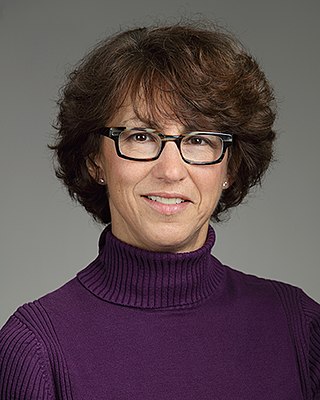
Emily J. Erbelding is an American physician-scientist. She is the director of the Division of Microbiology and Infectious Diseases at the National Institute of Allergy and Infectious Diseases (NIAID). Erbelding was previously deputy director of the Division of AIDS at NIAID. She was a faculty member at Johns Hopkins School of Medicine and served as director of clinical services for the Baltimore City Health Department STD/HIV program.

Dorland Jones Davis was an American physician, commissioned officer in the U.S. Public Health Service (PHS). He was the director of the National Institute of Allergy and Infectious Diseases from 1964 to 1975. Davis was born in Chicago, Illinois, on July 2, 1911. He received a B.S. degree from the University of Illinois in 1933, an M.D. degree from Johns Hopkins University in 1937, and a DrPH degree from Johns Hopkins in 1940.
Karen Colleen Carroll is an American infectious disease pathologist and medical microbiologist specialized in the evaluation of diagnostic platforms and the epidemiology of healthcare-associated infections. She is a professor of pathology and director of the division of medical microbiology at the Johns Hopkins School of Medicine.
Noreen A. Hynes is an American infectious disease physician specializing in vaccine preventable diseases and the epidemiology and control of tropical diseases. She is an associate professor of medicine at the Johns Hopkins School of Medicine.
References
- 1 2 "Thomas C Quinn, M.D., Professor of Medicine". Johns Hopkins Medicine. Retrieved 2022-03-29.
- ↑ Gilroy, William G. (2012-04-23). "Director of Johns Hopkins Center for Global Health to deliver 2012 Graduate School Commencement address". Notre Dame News. Retrieved 2022-03-29.